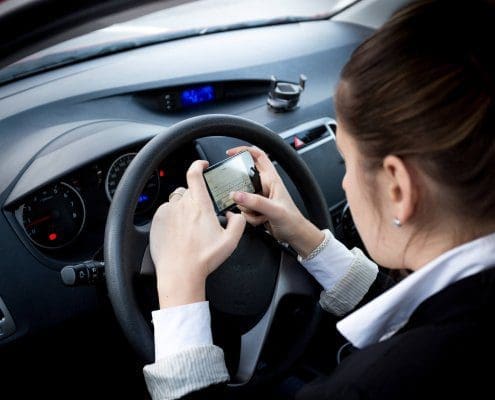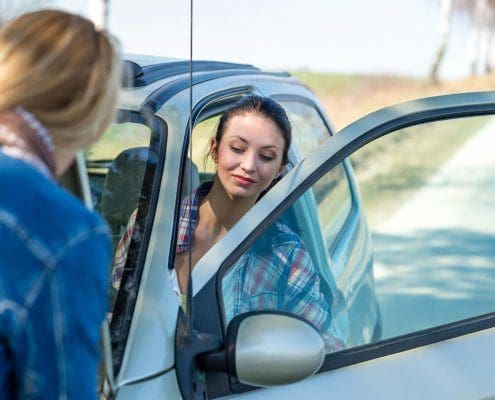GET A FREE LEGAL CONSULTATION
If you have been involved in a rear-end collision in Riverview, it is important that you understand how fault is determined in Florida and what your rights are in this situation. A free consultation with an attorney after a car accident can help you understand your legal options and how best to proceed. This article will help answer some initial questions you may have after a rear-end collision.
WHAT IS A REAR-END COLLISION?
A rear-end collision is an automobile accident where a vehicle runs into the back of the vehicle in front of it. Rear-end collisions are among the most common types of automobile accidents, accounting for nearly half of all two-vehicle accidents according to the National Transportation Safety Board (NTSB).
There are often multiple vehicles involved in a rear-end collision, especially in accidents that happened on the highway or freeway. Higher speeds can make it difficult for the driver in the rear to avoid colliding with the vehicle in front of them when the front driver comes to a sudden stop. Rear-end collisions can involve motorcycles, trucks, cars, or any other vehicle driving on the road.
HOW IS FAULT DETERMINED IN A REAR-END COLLISION
Determining fault is an important aspect of any car accident. However, it is important to know that Florida is a no-fault state. This means that every Florida driver must carry a personal injury protection (PIP) policy. PIP insurance helps cover the cost of any injuries you suffer as a result of an accident up to $10,000 regardless of who is at fault.
Fault becomes important in Florida car accidents when serious injury or property damage has occurred. If the damages suffered from an accident exceed $10,000 you may need to file a claim against the at-fault driver’s insurance in order to get the compensation you are entitled to.
Negligence is the key factor in determining fault after a car accident. Investigators will look to see which driver was negligent in their actions, leading to the rear-end collision. The fault may land on one person, be shared between the drivers involved, or may not be assigned to anyone.
Every driver has a duty of care to the other people on the road. When that duty of care is breached due to a driver’s actions or lack of actions resulting in injury or damage, that driver is considered to be negligent. A driver that is determined to have been negligent in a rear-end collision is the driver that will be held at fault.
REAR DRIVER IS AT FAULT
The rear driver is most often considered to be at fault in a rear-end collision. Drivers have a responsibility to pay attention to the road conditions and other vehicles in front of them at all times. This is why the rear driver usually takes the blame in a rear-end collision. The argument is that they would not have run into the other vehicle had they been paying attention.
Driving too close to the car in front of them is another reason the rear driver is commonly responsible for a crash. When behind another vehicle, drivers have a duty to maintain a safe distance from the back of the vehicle in front of them in order to allow ample time to stop if needed. Drivers that ride too close to the vehicle ahead of them can cause rear-end collisions when the front driver stops or slows down.
Reasons a rear driver may be at fault for a rear-end collision include:
- Texting while driving
- Talking on the phone
- Paying attention to a navigation system
- Driving while under the influence of drugs or alcohol
- Driving too close to the vehicle in front of them
- Daydreaming
- Falling asleep at the wheel
- Speeding
If the rear driver in a rear-end collision was guilty of any of these negligent actions, they could be held liable for the accident.

FRONT DRIVER IS AT FAULT
The driver who was struck from behind in a rear-end collision is usually not to blame for the accident. Because the front driver is expected to be paying attention to the road ahead of them, it is difficult for them to anticipate or avoid a collision from behind. However, some rear-end collisions can be caused by the front driver. Circumstances that may lead to the front driver being at fault for an accident include:
- The front driver not having working tail lights
- The vehicle in front begins to accelerate in reverse
- Pulling out in front of a vehicle with no space or time for them to slow down before a collision
- Coming to an abrupt spot in a place and time the rear driver could not anticipate

NO-FAULT AND COMPARATIVE FAULT IN FLORIDA
There are some instances where neither driver is considered at fault for a rear-end collision. This is usually due to unforeseeable circumstances that were unavoidable by either driver, such as:
- The rear driver suffering a vehicle malfunction, preventing them from stopping and avoiding a collision
- A sudden medical emergency suffered by the rear driver (heart attack, seizure)
The law would not hold either driver at fault under such circumstances. If the crash was due to a vehicle malfunction, the manufacturer may be held liable for the damages.
It is also important to remember that Florida is a no-fault state. Each driver’s PIP insurance will cover their own damages suffered in most minor rear-end collisions. If your injuries exceed what is covered by your PIP policy, you may need to file a personal injury lawsuit against the at-fault driver’s insurance to recover damages.
Additionally, Florida is a comparative negligence state. This means that both drivers in a car accident can be assigned some degree of fault for the accident.
